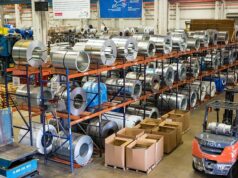The draft customs administrative order (CAO) to implement Philippine provisions on duty drawback, refund and abatement, and return of sash deposits held in trust has been released by the Department of Finance (DOF) and Bureau of Customs (BOC).
The eighth draft CAO related to Republic Act No. 10863 or the Customs Modernization and Tariff Act (CMTA) to be released for public hearing implements Sections 900 to 902, Chapter 1; Section 903 to 913, Chapter 2, Title IX; and other related sections of.
It covers duty drawback including refund of internal revenue taxes; refund for overpayment, abatement of duties and taxes; and other refunds arising from final decisions in protest cases, judicial decisions, special laws, and executive/presidential issuances.
Position papers on the draft CAO will be accepted until November 17, the same date of the public consultation for the proposed order.
The draft outlines how to use, revalidate, and transfer Tax Credit Certificates (TCCs), which are certificates proving the taxpayer has tax credit due that can be used to settle duties and taxes owed to the national government.
Duty drawback refers to the refund or credit of duties to the importer, and may include internal revenue taxes actually paid for the importation, while abatement refers to the reduction of duties and taxes payable on imported goods that have encountered loss, damage, shortage, defect, or other similar circumstances.
Refund, on the other hand, refers to the return of duties and taxes to an importer that has made an overpayment or erroneous payment or been overcharged due to wrong assessment. It may also include refund arising from final decisions in protest cases, judicial decisions, special laws and executive/presidential issuances, or any other claim where there is duty to return under the principle of solutio indebiti (where one makes a payment thinking he was bound in law to do so, when he is not.).
An importer may file for duty drawback under several circumstances. All fuel imported into the Philippines and used to propel sea vessels engaged in international trade; sea vessels engaged in coastal trade, if the Maritime Industry Authority or any appropriate government agency has authorized their temporary conversion to engage in international trade; and scheduled international airlines may apply for up to 99% of the duty imposed by law.
For up to 50% of the duty imposed by law, covered by duty drawback are petroleum oils and oils obtained from bituminous materials, crude oil imported by non-electric utilities, sold directly or indirectly, in the same form or after processing, to electric utilities for the generation of electric power and the manufacture of city gas.
Importers may also apply for duty drawback for imported materials, including those used in the packing, covering, putting up, marking or labelling for which duties had been paid, upon exportation of the goods manufactured or produced.
An importer may file for refund of duties and taxes charged exceeding the amount due, under the following circumstances: error in the assessment or goods declaration; if BOC permits a change in customs procedure from one where duties and taxes are paid to another where no or less duties and taxes are required to be paid; manifest clerical errors made on an invoice or entry, errors in return of weight, measure and gauge; and errors in the distribution of charges on invoices not involving any question of law.
An importer may file for abatement or refund of duties and taxes for missing packages; deficiency in contents of packages; goods lost or destroyed after arrival; defective goods; and dead or injured animals, all subject to certain conditions. – Roumina Pablo
Image courtesy of Stuart Miles at FreeDigitalPhotos.net









